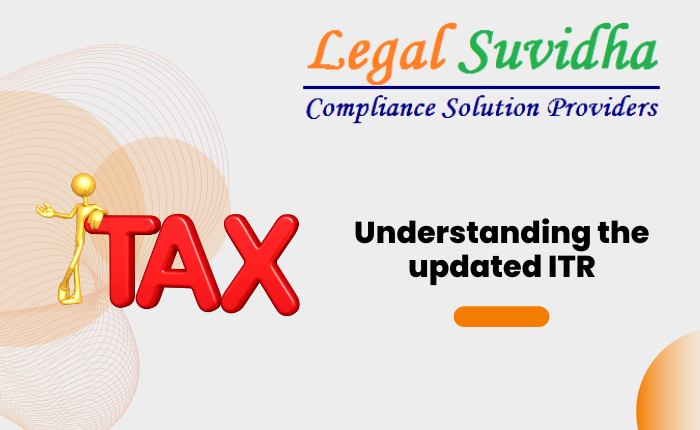Introducing Enhanced Income Tax Return (ITR)
- In a move to encourage people to follow tax rules, the government brought in the idea of an “enhanced income tax return” in the 2022 Budget.
- This means you can either submit a brand-new tax return or make changes to an existing one within a certain time.
- To do this, you need to pay extra taxes, interest, and fines, all aimed at getting more people to follow the rules and avoiding bigger fines later on.
Who Can Update Their Tax Return (ITR)?
- Anyone, whether you’re an individual, part of a family, or a business, can use this new option.
- If you’ve already filed your taxes (on time, late, or with changes), or if you haven’t filed at all, you have two years after the assessment year ends to update your return.
- Remember, this doesn’t work for getting money back, like a tax refund.
For example, if it’s the financial year 2020-21 (the assessment year 2021-22), you can make updates until March 31, 2024.
Who’s Eligible and How to Do It?
- Everyone, whether you’re an individual or part of a family or business, can use this option.
- You just need to give a reason for making changes, like not filing before, reporting your income wrong, or choosing the wrong income categories.
Here’s how you can do it online:
- Log in to the tax portal.
- Click on ‘File Income Tax Return(ITR)’.
- Choose the right assessment year and pick ‘139(8A)-updated return’.
- Upload an offline JSON file.
- Fill in the needed information, like the original return details.
- Add any extra income and calculate the new tax.
- Check everything and send in the updated return.
How Taxes Are Figured Out
- If you never filed your taxes before, you need to pay what you owe plus extra for updating, along with interest and late fees.
- This is figured out by looking at the tax you should have paid in advance, the tax taken from your income already, any relief you claimed, and other things.
- Even if you did file before, you still have to pay more taxes, interest, and fees.
Calculating the additional Tax
- If you update after the original due date but within a year from the end of the assessment year, you pay 25% more on your total tax, plus other charges.
- If you update between 12 and 24 months, you pay 50% more on your total tax, plus charges.
Why This Matters
- The whole point is to make fixing or updating your tax returns simpler.
- It also makes sure that people follow the tax rules on time.
If You have any queries then connect with us at [email protected] or [email protected] & contact us & stay updated with our latest blogs & articles
Post Views: 8








